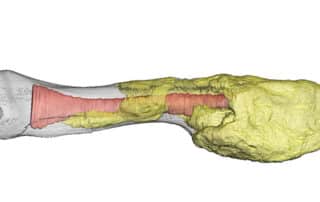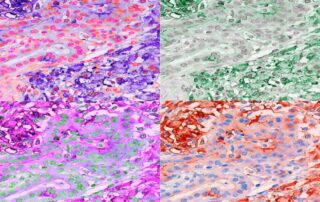Doctors diagnose advanced cancer—in a dinosaur
Source: Science Mag Date: August 3rd, 2020 Author: Gretchen Vogel This deformed bone is the first clear example of a malignant tumor diagnosed in a dinosaur. The partial fibula—a bone from the lower leg—belonged to a horned, plant-eating Centrosaurus that lived roughly 76 million years ago in what is now Dinosaur Park in southern Alberta in Canada. Paleontologists initially thought the bone’s strange shape was due to a fracture that hadn’t healed cleanly. But a new study, published today in The Lancet Oncology, compares the internal structure of the fossil (above) with a bone tumor from a human patient to seek a diagnosis. The conclusion: The dinosaur suffered from osteosarcoma, a cancer that, in humans, primarily attacks teens and young adults. The disease causes tumors of immature bone tissue, frequently in the long bones of the leg. This isn’t the first time cancer has been found in fossil remains. Scientists have identified benign tumors in Tyrannosaurus rex fossils and arthritis in duck-billed hadrosaurs, as well as an osteosarcoma in a 240-million-year-old turtle. But the researchers say their study is the first to confirm a dinosaur cancer diagnosis at the cellular level. Scientists, including paleontologists, pathologists, a surgeon, and a radiologist, examined the full fossil with high-resolution computerized tomography scans and examined thin sections under the microscope to evaluate the structure of the cells. They found that the tumor was advanced enough that it had probably plagued the animal for some time. A similar case in a human, left untreated, would likely be fatal, they write. However, [...]


